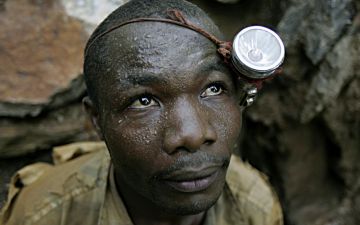In Search of Congo's Coltan
Bukavu is perched high above Lake Kivu, gently encroaching on the placid body of water between Rwanda and Congo. Once known as the pearl of Congo because of its beautiful climate and mountains, the Bukavu I found last summer barely resembles the famed city I heard about as a child.

